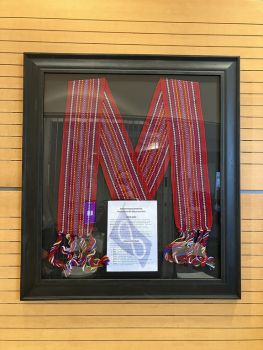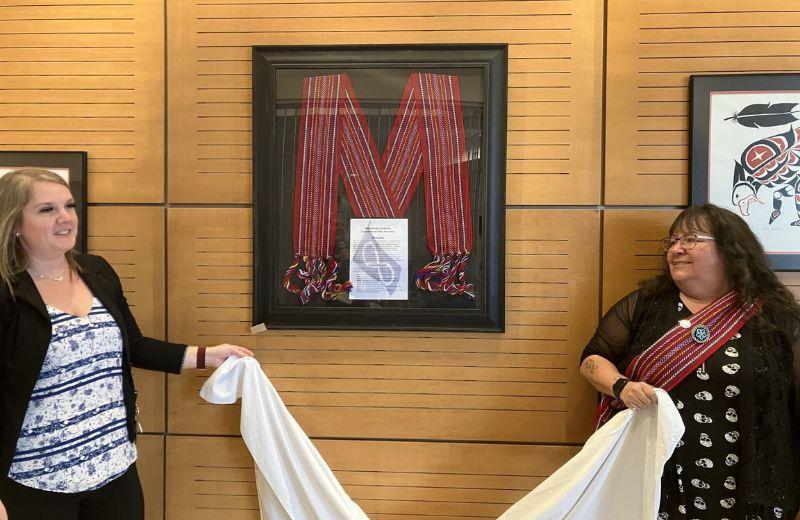Kitimat General Hospital marked a meaningful milestone in its journey toward culturally-safe care. On April 30, a special event celebrated the unveiling of a framed Métis sash at the hospital’s front entrance—a powerful symbol of Métis identity and pride.
This initiative was led by Kelly Stalker, Indigenous Community Engagement Advisor, in collaboration with Bernadette Chaboyer, President of the Northwest Métis Community Association. The event brought together representatives from the Northwest BC Métis Association, Métis Nation BC, Northern Health staff, and Métis community members in a celebration of culture, connection, and community.

The Métis sash is more than just a garment—it is a vibrant expression of heritage, resilience, and belonging. For many Métis people, it serves as a visible link to their ancestors and a proud symbol of identity. Its presence in the hospital not only honours the Métis community but also invites learning and dialogue among staff and visitors.
This unveiling reflects Northern Health’s commitment to ensuring that our physical spaces represent the diverse cultures of the communities we serve. It’s a step toward fostering inclusivity, representation, and culturally safe care environments.
Importantly, this initiative also aligns with Northern Health’s ongoing commitment to Truth and Reconciliation. By creating space for Indigenous voices, symbols, and stories within our facilities, we are taking meaningful steps toward acknowledging the past, honouring Indigenous identities, and building a more respectful and equitable health care system.
As we close Indigenous History Month, this event stands as a reminder that reconciliation is not a one-time act—it is a continuous journey. And every gesture of recognition and respect helps build stronger, more inclusive relationships.














Comments